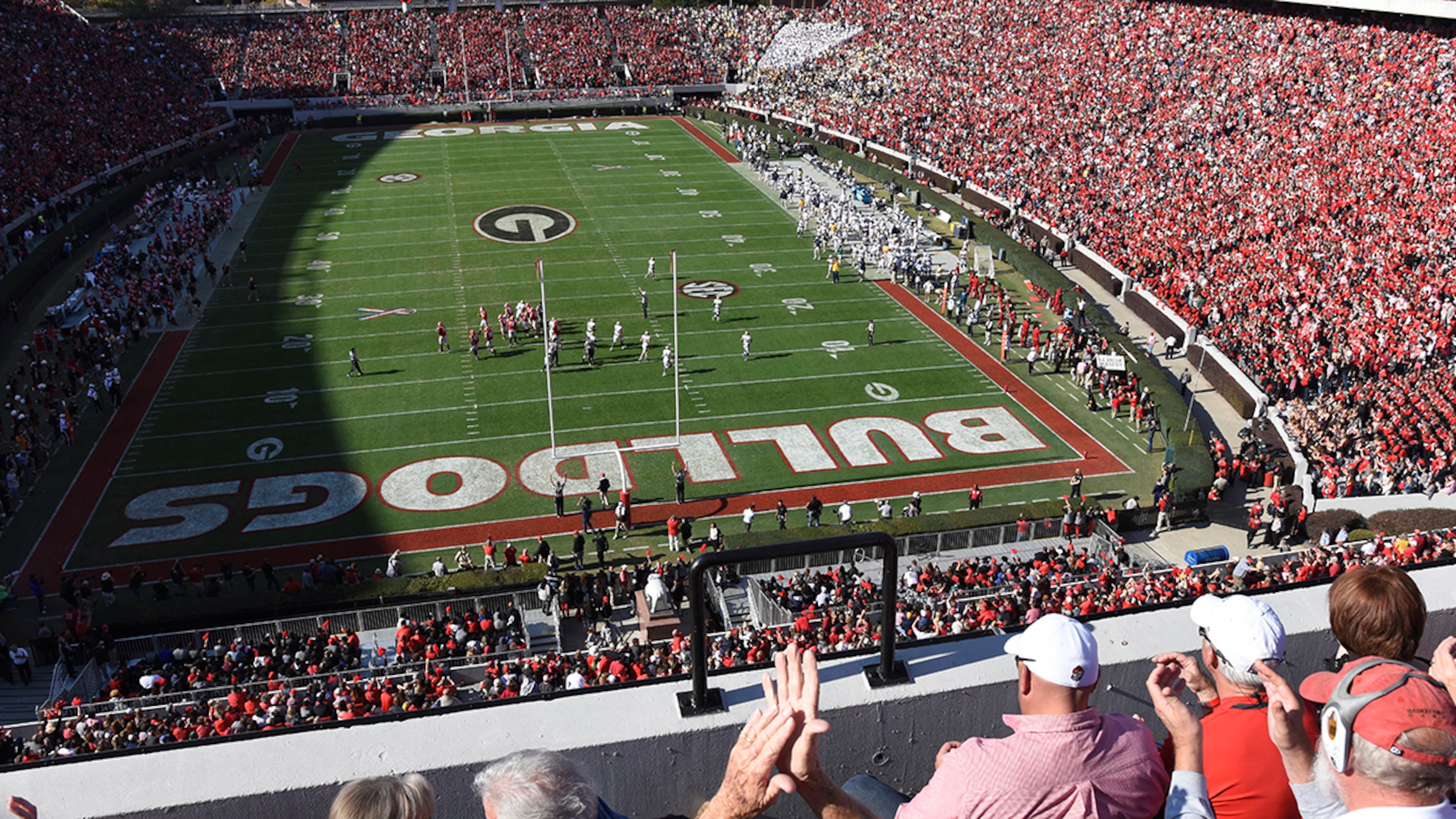SEC looking to cut length of average college football game

If you’ve watched or attended college football games lately and said to yourself, this game seems too long, you’re not alone. The NCAA and SEC think so, too.
And if you’ve sat through what’s supposed to be a 20-minute halftime and thought to yourself, that went a bit longer than 20 minutes, you’re also not alone. Again, the NCAA and SEC have noticed.
The SEC, as part of a national emphasis, will be implementing a few measures — minor enough that many may not notice — to shave a few minutes off the average time of a college football game.
The average length of an SEC football game last year was 3 hours and 26 minutes. The national average was 3:24. The conference would like its number to go down.
“We’ve asked before, what is the optimal time? And nobody’s answered that question yet,” SEC coordinator of officials Steve Shaw said during a presentation to the media at the SEC meetings last week. “If you ask the NFL, they have answers for that. But their game looks so much alike game-to-game, they’re always in a tight window. Ours are not.”
Indeed, while the NFL and college both use four 15-minute quarters, NFL games are shorter, and intentionally so at the pro level. They want those 1 p.m. ET games to finish in time for people to see the start of those later games, which start around 4:15 p.m. The college schedule on Saturdays is a bit less regimented, with each conference on its own TV contract, and ESPN — which has the most TV involvement — able to bounce those games around on its various channels.
Still, the NCAA is concerned about its game length, but not enough that it’s changing the two things that differentiate it from the NFL — stopping the clock on first downs and a 20-minute halftime, versus a 12-minute halftime.
But there will be an increased emphasis regarding both those things.
When it comes to halftime, Shaw said there’s an acknowledgement that there has been too much lollygagging. The concern is that officials have gotten away from starting the 20-minute halftime clock immediately, either because they’re waiting on the coaches’ walk-off interview, or the game manager says they have two bands going, etc. So halftimes have often been stretching to 23 or 24 minutes.
So now after the last play of the half, the referee will make sure there are no flags, no replay review coming, etc.
“And then we’re going to crank the 20-minute [clock],” Shaw said.
When the 20 minutes are up, kickoff will quickly follow. Hopefully within seconds of that 20-minute clock running out.
“I really believe if our officials work well with our TV partners, and we do well with the halftime component, we’ll whittle that down,” Shaw said.
Then there’s first downs, and the clock winding quickly afterwards. Shaw said there will be a re-emphasis on re-starting the clock when the center judge puts the ball down to be snapped. Research showed they had also delayed a bit there.
It’s not just there: Shaw said referees have been told to be “actively consistent” in restarting the game clock after the substitution process.
“We’re going to keep the game moving,” Shaw said.
How much time will be saved overall with these measures? Shaw said the thinking is it will cut down five or six minutes.
So what about the length of commercial breaks, which fans complain about? That’s out of the control of the officials.
If you’ve been to games, you may notice an official in a red hat who signals to the referee when TV has come out of commercial, meaning the game can restart. The referee simply cannot end the commercial break and restart the game.
The referee does have the discretion to keep the game going rather than going to a TV timeout, in some cases where flow of the game is important.
“If there’s a momentum play, the referee can look at the red hat and say, no,” Shaw said. “Let’s say you have a punt. The referee gets ready for play, gets his count, and I would always sneak a peak at the red hat and he would say, ‘I want a timeout.’ But we would get a big punt return and I’ll say to him, Nope we’re going, we’re staying.
“But once it goes to TV, our TV liaison has total control.”


